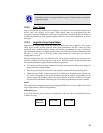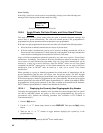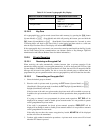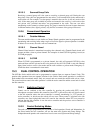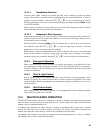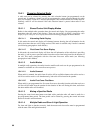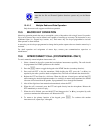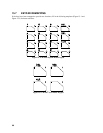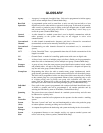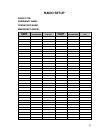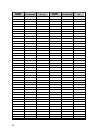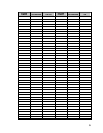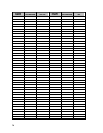69
GLOSSARY
Agency
- An agency is composed of multiple fleets. Units can be programmed to initiate agency
calls to access multiple fleets (Trunked Mode Only).
Base/Unit
Operation
- A programmed option used in some fleets so units can only hear and talk to a base
dispatch unit, not to other mobiles or personals in the group. In this mode of operation,
when a unit in a particular group is talking to the base dispatch unit, all other mobile
and personal radios in that group will receive a "System Busy" tone if they try to
access the system (Trunked Mode Only).
Control
Channel
- A radio channel in a trunked system that is used to digitally communicate with the
radios operating on the system when they are not engaged in active voice
communications.
Conventional
Channel
- A radio channel (transmit/receive frequency pair) that is allocated for conventional
(non-trunked) use and can be manually selected by the operator.
Conventional
Mode
- Communicating on radio channels allocated for conventional use (i.e. conventional
system).
CCT
- Carrier Controlled Timer - a programmable timer that will disable a transmission if the
length is exceeded.
CG
- Channel Guard - a method of controlling speaker mute with a tone or digital code.
Fleet
- A fleet of users consists of multiple groups (sub-fleets). Radios can be programmed to
make fleet calls to simultaneously access multiple user groups (Trunked Mode Only).
Group or
Sub-fleet
- A group of users share the same program group identification number in their mobile
and portable radios. All units in the same group will receive a dispatch call placed by
any one unit in the group (Trunked Mode only).
Group Scan
- Programming that allows the radio to monitor many groups simultaneously (multi-
group decode), permitting the user to both monitor and receive calls from these groups.
The radio can be programmed with a scan hang time which causes the radio to remain
on the scanned group for a pre-programmed amount of time, responding only to calls
of a higher priority such as priority scan group calls, individual calls, fleet calls,
agency calls, etc. When activity on the scan group ends, and the pre-
p
rogrammed time
has expired, the radio returns to monitoring multiple groups (Trunked Mode Only).
Individual
Call
- Every radio in the system is programmed with a unique individual identification code.
A mobile or portable unit can be programmed to call another particular unit by
selecting the individual by name or ID number (Trunked Mode Only).
Queueing
- The process that occurs when all channels in a trunked system are busy and calls mus
t
be addressed on a priority basis.
Site
Controller
- The computer controlled radio equipment at the repeater site that controls a trunking
system.
System
(area)
- The terms "system" and "area" are used interchangeably to refer to the particular group
of station repeaters currently providing service to the radio.
System
Manager
- A computer that performs the databasing and system monitoring for the site controller.
System
Scan
- A programmed feature to scan (monitor activity on) separate trunked systems and
receive calls on any of these systems (Trunked Mode Only).



